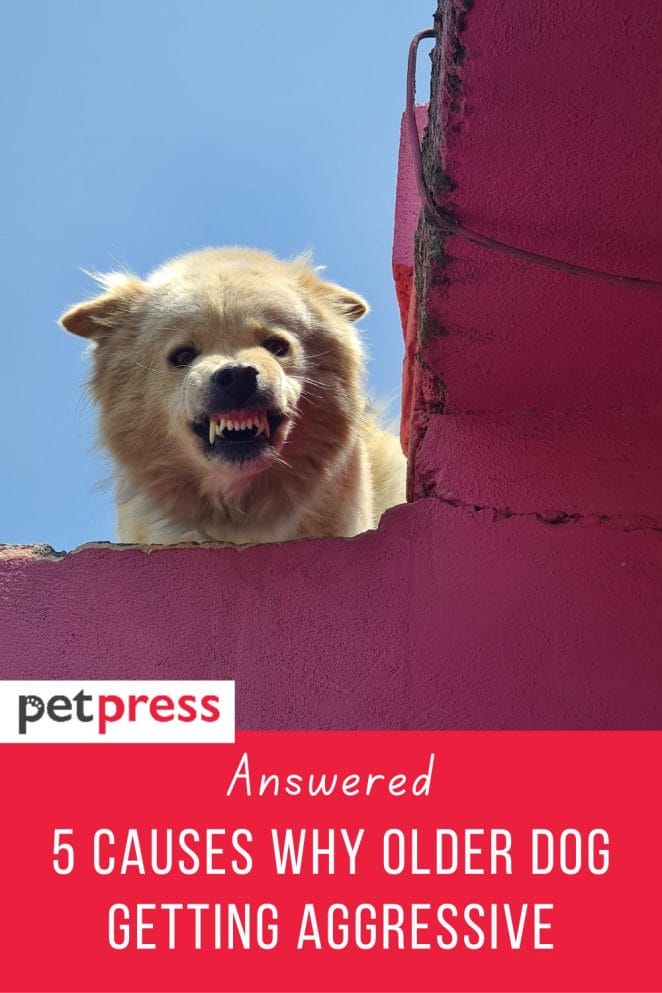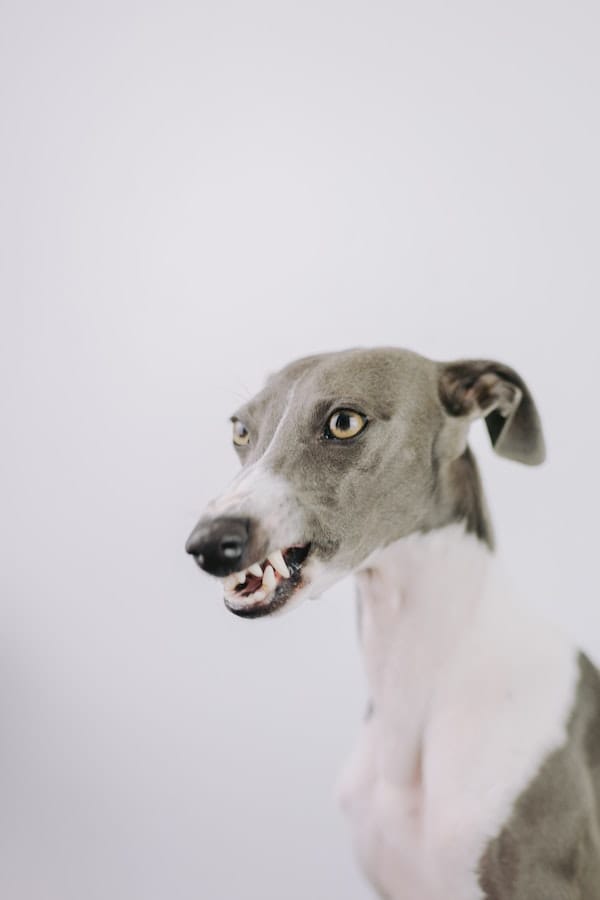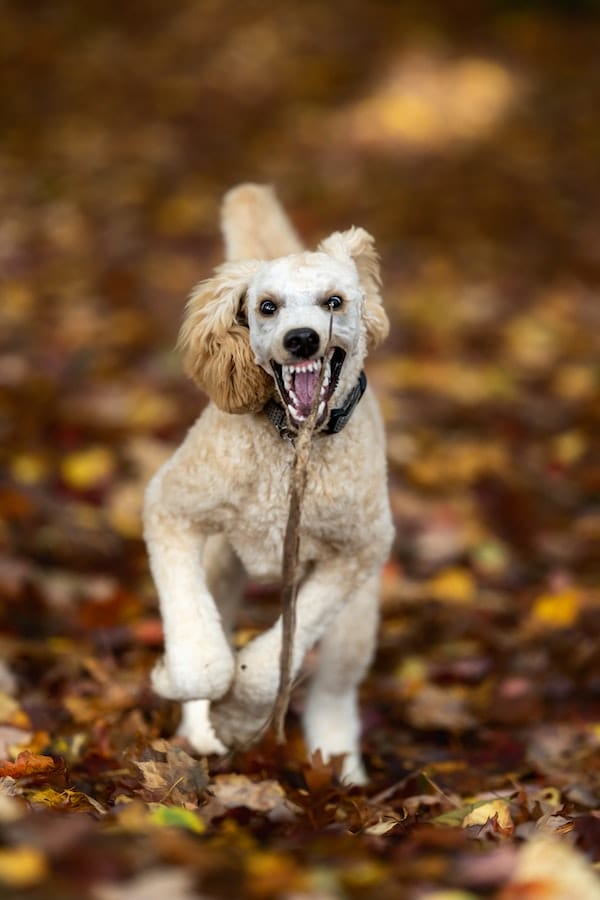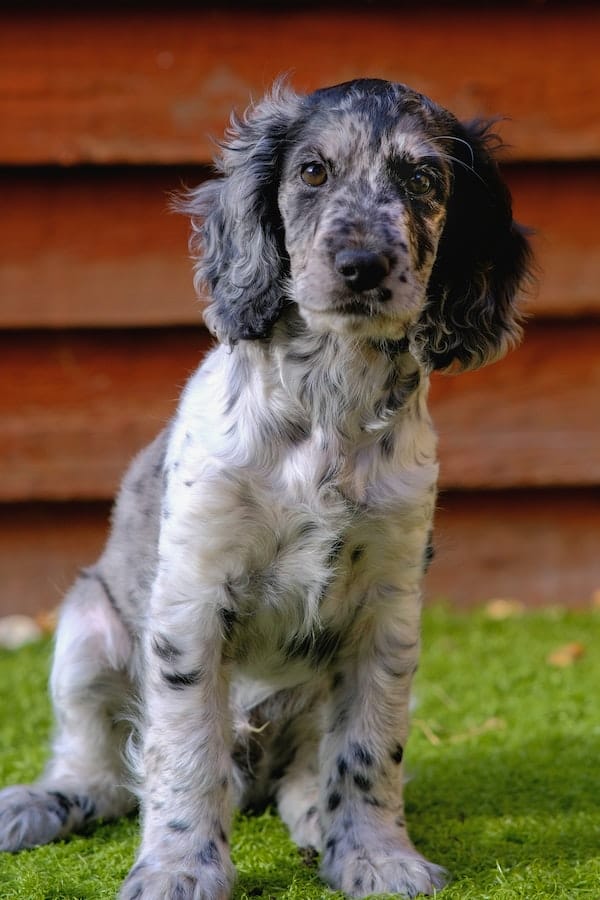
Hello there, fellow dog parents! Have you been asking yourself lately, “Why has my once peaceful old furry friend suddenly turned aggressive?”
Well, you’re not alone.
Many dog parents face this issue, and, contrary to popular belief, it’s not always because age has made your pooch grumpy.
There are numerous factors, some of which you might not even have considered, and today, we are going to dive deeper into this intriguing topic.
Why do Older Dogs Become Aggressive?
You’re probably scratching your head wondering, “Why on earth is my older dog suddenly snappy?”
The truth is, there isn’t a singular, straightforward answer.
It’s like asking why some people become grumpy as they get older.
There’s a myriad of reasons and it often has to do with a mix of physical and psychological changes.
Let’s break this down:
Age-related health issues
Just as aging can be tough on us, it’s equally, if not more so, hard on our dogs.
They may be dealing with ailments such as arthritis which can cause nagging pain and make them irritable.
Imagine how you’d feel if you were aching all over.
Diminishing senses
A dog’s senses – sight and hearing – often weaken with age.
They might feel more vulnerable and start lashing out as a defensive mechanism.
It’s like they’re saying “I can’t see or hear you well, so I’m going to protect myself just in case.”
Deteriorating cognitive function
Aging can affect a dog’s cognitive function, leading to confusion and aggression.
Ever found yourself getting snappy when you’re confused or overwhelmed? Well, dogs are no different.
Changes in the household
Whether it’s a new pet, a new baby, or a change in the schedule, older dogs may respond to these changes with aggression.
Change can be tough for anyone, and older dogs are no exception.
Fear or anxiety
Fear or anxiety could also play a significant role.
It could be as simple as a loud noise, or as complex as a new person in their space that’s causing them stress.

Signs of Aggression in Older Dogs
You might be wondering: “How can I tell if my old furry friend is turning aggressive?”
Good question!
It’s not always easy to spot, especially if their behavior changes gradually. So, let’s delve into this a bit further and look at some of the most common signs.
Growling or snarling
You know that low, throaty sound your dog makes?
The one that’s nothing like their playful woof?
Yes, that’s a growl, and it’s a big red flag.
More so if it’s accompanied by snarling, which is like a growl, but with teeth bared.
They might as well be holding up a sign saying “I’m not comfortable!”
Baring teeth
If your dog is showing their teeth, it’s a clear signal that they’re feeling threatened or defensive. It’s their way of saying, “Back off!”
Biting or nipping
This one might appear more obvious, but sometimes we might dismiss it as playfulness.
However, if your older dog has started biting or nipping suddenly, it’s a sign of aggression.
It’s like they’re saying, “I gave you all the warnings, now I have to protect myself!”
Change in body posture
Subtle changes in body posture can indicate aggression.
This could include stiffening of the body, an erect tail, ears pinned back, or raised fur along the back.
They’re essentially putting on their armor and preparing for a battle they think is coming.
Protectiveness of space or toys
If Fido never cared about others coming near his toys or bed and now he’s suddenly doing the canine equivalent of yelling at kids to stay off his lawn, it’s a sign.
He’s trying to protect what he thinks is his from a perceived threat.
Avoidance or fearfulness
Lastly, if your dog is avoiding interaction or exhibiting fearfulness, it could be a sign of impending aggression.
They’re likely trying to avoid a situation that makes them feel uncomfortable.

How to Deal with an Aggressive Older Dog
So, you’ve noticed your once cuddly older dog has suddenly developed aggression – what now?
It’s scary, isn’t it?
The good news is, that there are several steps you can take to manage and potentially reduce this aggressive behavior.
Stay calm
First and foremost, remember to stay calm. Your dog is likely reacting from fear or pain.
They’re not turning into a monster or purposefully trying to make your life difficult.
It’s essential to maintain a calm demeanor around them. After all, dogs can pick up on our emotions!
Contact a professional
Reach out to a professional dog behaviorist or a vet who can help determine the root cause.
Is it physical pain? Anxiety? Cognitive dysfunction?
Once you have a better understanding, you can work on a tailored approach to manage their aggression.
Avoid triggers
If you notice certain situations or stimuli trigger your dog’s aggressive behavior, do your best to avoid them.
It might be specific spaces in your house, certain toys, or even specific people.
Lower the chances of an aggressive episode by managing their environment carefully.
Accommodate their changing needs
Your older dog may require a different diet, a new sleeping arrangement, or adjusted walk schedules to cater to their aging body and mind.
Providing these changes can help reduce discomfort, and hence, aggressive behavior.
Provide reassurances
If fear or anxiety is causing the aggression, reassuring your dog can help.
Use a soft, soothing voice, gentle strokes, and even their favorite treats to calm them down.

Consult on possible medication
If your vet suggests that chronic pain or anxiety could be causing the aggression, they may prescribe medication to help manage these symptoms.
Medication is typically used as a last resort and should be used in conjunction with behavioral modification strategies.
Use positive reinforcement
Instead of punishing bad behavior, reward good behavior.
If your dog doesn’t react aggressively in a situation where they usually would, praise them, and give them a treat.
This reinforces the idea that good behavior comes with rewards.
Conclusion
While it can be a stressful time dealing with an aging dog exhibiting aggression, remember that your furry friend is likely even more confused and scared than you are.
Identifying the root cause and addressing it with professional help can significantly improve your and your dog’s quality of life.
Understanding your dog’s aggression not only strengthens the bond you share but also ensures they are comfortable and safe in their older years.
FAQs
Sudden aggression in older dogs can be due to physical ailments like arthritis, dementia, or sensory loss. It can also be a result of psychological disturbances. It’s crucial to consult a vet to understand the root cause.
Old age doesn’t directly cause aggression in dogs, but the ailments and discomforts that come with aging can lead to changes in behavior, including aggression.
Identify the triggers and avoid them. Seek help from a professional dog behaviorist and consult your vet to rule out any underlying medical issues.
Depending on the root cause, many aggressive dogs can improve with the right management, training, and in some cases, medical treatment.


GIPHY App Key not set. Please check settings